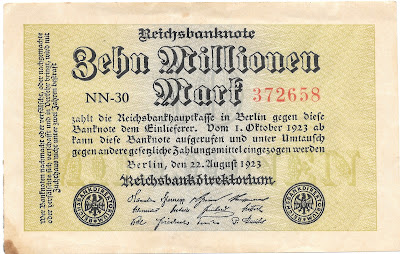“Do not store up for yourselves treasures on earth, where moths and vermin destroy, and where thieves break in and steal. But store up for yourselves treasures in heaven, where moths and vermin do not destroy, and where thieves do not break in and steal. For where your treasure is, there your heart will be also” (Matt 6:19-21).
It’s OK to want to be rich, but there’s more than one kind of riches.
According to Jesus, there is wealth that will pass away and wealth that will last. He advises us to store up wealth that will last. But what kind of wealth lasts?
In the past, wealth might just be stored food. If you could store up enough grain to last a lifetime, you were set — unless something got into your grain and ruined it. Or you could have gold or silver — as long as no one broke in and stole it. Today people are less likely to keep massive granaries, preferring to invest so that your money makes more money. Until the stock market crashes or that company you sunk your savings into turns out to be nothing but a shell game. So some people just hide their cash in their backyard, which seems like a safe bet until runaway inflation hits and a loaf of bread costs a million dollars (or Deutsch marks).
Stored goods can be ruined, gold can be stolen, markets can crash, and money can be devalued. What kind of treasure lasts forever?
Remember our rule of thumb. “Religion that God our Father accepts as pure and faultless is this: to look after orphans and widows in their distress and to keep oneself from being polluted by the world” (James 1:27). Looking after widows and orphans in their distress sounds a lot like what Jesus described:
“Then the King will say to those on his right, ‘Come, you who are blessed by my Father; take your inheritance, the kingdom prepared for you since the creation of the world. For I was hungry and you gave me something to eat, I was thirsty and you gave me something to drink, I was a stranger and you invited me in, I needed clothes and you clothed me, I was sick and you looked after me, I was in prison and you came to visit me’” (Matt 25:34-36).
Jesus wants us to use the money we have to do good. “Money, wealth, and possessions have at least three primary purposes in Scripture: (1) to give appropriate care for one’s own family and prevent them from becoming a burden to others (1 Thess. 4:11–12; 2 Thess. 3:6–15; 1 Tim. 5:8); (2) to help those who are in need, especially the family of faith (Prov. 19:17; Acts 11:27–30; Rom. 15:25–27; 2 Cor 8:1–15; Gal. 6:7–10; Eph. 4:28; 1 Tim. 5:3–7); and (3) to encourage and support God’s work in spreading the gospel of the kingdom both at home and around the world (1 Cor. 9:3–14; Phil. 4:14–19; 1 Tim. 5:17–18).”1
It’s interesting that Jesus says, “where your treasure is, there your heart will be also” (Matt 6:21). He’s not telling us to put our money where our heart is. He says our heart follows our treasure. The more you give to God’s people and God’s work, the more your heart will be in heaven.
Is it wrong to save money? Is it a sin to save for retirement? No. The scriptures say it is good to lay up for future needs and for your children’s children (Prov 13:22). But you may never get to spend that money. None of us knows how long we will live, but we all know there is a life to come after retirement. So be sure to save for your post-retirement.
As the old saying goes, you can’t take it with you, but you can send it on ahead.
1 Wilkins, Michael, NIV Application Commentary: Matthew
Image: a 10 million German mark bank note from 1923

No comments:
Post a Comment